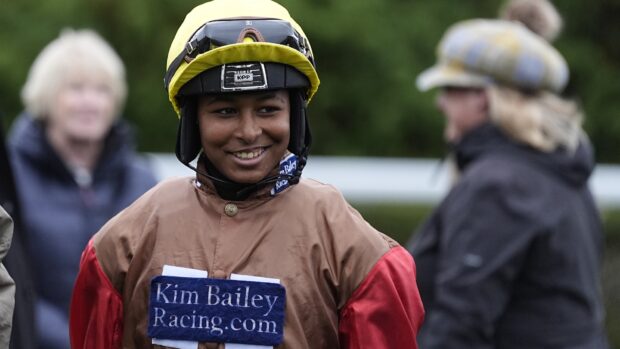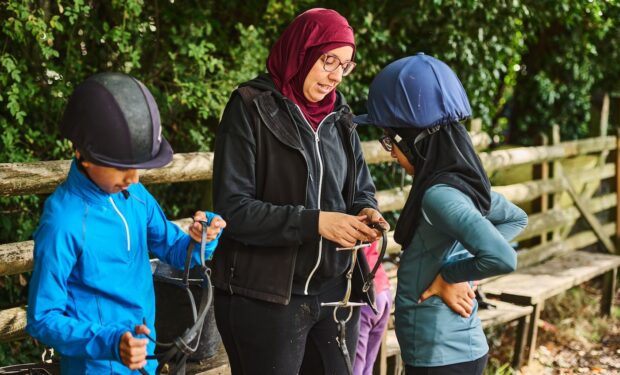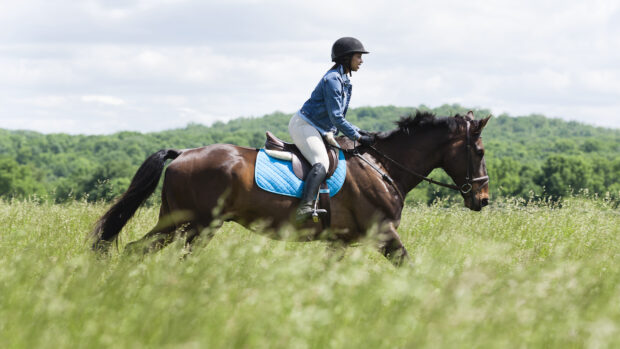“Things can’t stay the same, if we don’t act the same”.
Action is being taken across the industry to try to address the lack of ethnic diversity in our sport.
H&H reported last month on the barriers to diversity in equestrianism and what is being done to bring them down.
In the past few weeks, measures taken at different levels of the industry include equestrian governing bodies’ signing up to a Sport and Recreation Alliance pledge to tackle racism and inequality to photographer Jade Greenfield’s pictures of young mixed-heritage rider Trinity Allman.
Ashleigh Wicheard, who has ridden from a young age, worked for years in racing and was often the only Black woman in the paddock, told H&H she feels confident change is coming.
“There is definitely a lack of Black people in the sport, but there’s a lot we can do about that; that can change,” she said.
“We need role models. In other sports, there are people for everyone to relate to, but at the moment, in the equestrian world, we don’t have those Black faces for people to aspire to.”
Ashleigh started riding as a child, and was on the Avon Vale Pony Club mounted games team for years. She moved on to working with point-to-pointers and, although she had to cut back on riding for a while to concentrate on schoolwork, she returned to working with horses, in racing, after she had her daughter.
She rode work, and led up at courses including Aintree and Cheltenham, going on to work with a project that uses equine therapy to help current and former prisoners.
Ashleigh said that apart from one or two comments, she never experienced direct or deliberate racism but she knows how it feels to be the only Black person in a situation.
“With the recent Black Lives Matter movement, I feel so much positivity has come out,” she said. “We’re really coming together as a community and I now feel aware of other Black people in the sport, and I can communicate with them, and we’ve got common interests.”
Ashleigh has thought about whether taking horses into schools — as her previous projects have in prisons — would help, to give young children access to the sport and realise they could be part of it. But however it happens, she thinks change will come.
“There are so many people dedicated to the cause,” she said. “Or maybe not that many, but those who are are saying ‘come on, let’s do this’. They are the game-changers who aren’t afraid to ruffle feathers. Some people might feel uncomfortable, as they think pro-Black means anti-white, but it doesn’t.
“There is a level of racism in equestrianism; maybe not direct name-calling but assumptions, and looks, and underlying feelings.
“But I’m sure things will change. They can’t stay the same, if we don’t act the same.”
Sandra Murphy, the director of Equidiet who has also in the past been the only Black rider or person in an equestrian setting, is also campaigning for change.
She has set up the BAME equines and rural focus group (BERF) to try to open doors for BAME people into rural activities and jobs such as farriery or farming, as well as riding.
She is gathering information and supporters for this project, and hopes also to use her experience with the National Schools Equestrian Association to help BAME riders progress, so of those who start learning at riding schools, the talented riders can be helped to progress higher in the sport.
Continues below…

‘Confronting the ugly truth’: sports pledge to do more to combat racism and inequality
‘It is time to confront racism and inequality that exists across sport, from grassroots participation through to the boardroom’

I’m just a person doing what she loves’: Muslim rider calls for more minorities to try riding
‘Being part of the equestrian world is so much fun, it’s a shame if people feel it’s a world they

Subscribe to Horse & Hound magazine today – and enjoy unlimited website access all year round
She is to offer a place as an equestrian administration assistant in her firm, to someone who will also have the chance to ride and compete, but acknowledges that change will be a slow process.
“You’re never going to rush this sort of thing; people need time to gain the skills and experience,” she told H&H. “The problem is progression; we need to see the BAME riders at our national championships, which are achievable for anyone, people of colour or not.”
Sandra has also been in touch with Sport England, to find out if she can work with the body on diversity, also acknowledging that to see people work up to board level in sports administration will also be a long job.
But she says she has also noticed increased positivity recently, with “lovely messages” from people online, and others fighting her corner in debates.
“I think this movement has allowed more white people to challenge their belief systems,” she said. “Things won’t be turned around instantly, but I think we’re at the turning point.”
We continue to publish Horse & Hound magazine weekly during the coronavirus pandemic, as well as keeping horseandhound.co.uk up to date with all the breaking news, features and more. Click here for info about magazine subscriptions (six issues for £6) and access to our premium H&H Plus content online.




